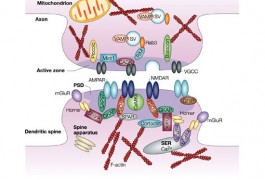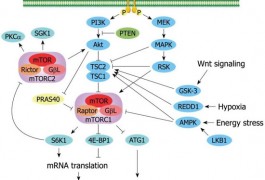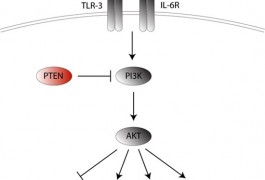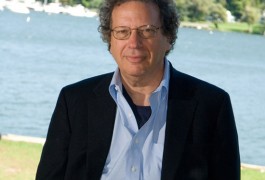Tuberous sclerosis mice have fewer synaptic proteins
A study of mice with tuberous sclerosis — a single-gene disorder that is related to autism — suggests that most forms of autism share a common feature: an imbalance of proteins at the synapse, the junction between neurons. The work was presented Monday at the Society for Neuroscience annual meeting in San Diego.





